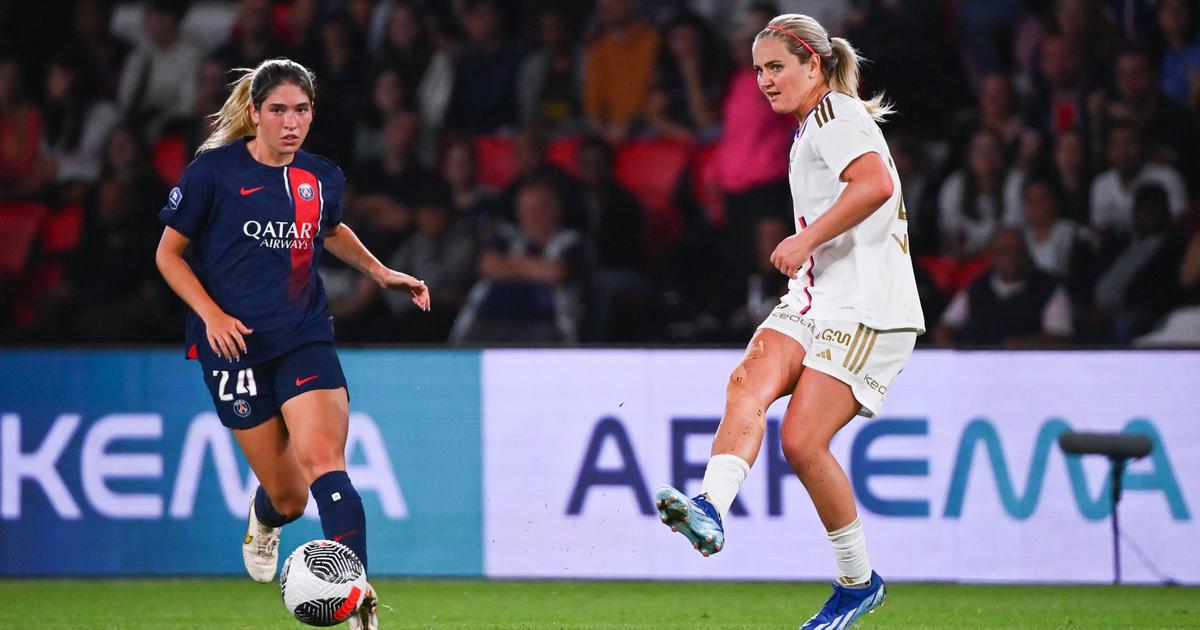A month and a half before the start of the Women's World Cup in Australia and New Zealand, fans of five of the great powers of European football still do not know if they will be able to follow it on television. Downward bids from public broadcasters in Germany, Britain, France, Italy and Spain have been rejected by FIFA. World football's governing body has refused to sell off the rights to the competition that serves as the great exhibition engine of women's football. The last hope is the joint negotiation that the aforementioned five countries, all qualified for the tournament, have channeled in recent days through the European Broadcasting Union (EBU). If an agreement is not signed, FIFA will try to remedy it by implementing an application so that in these countries the tournament can be followed through streaming broadcasts, of less accessibility and worse quality than conventional ones.
"This is a slap in the face of all the great players of the World Cup and, indeed, all the women in the world. To be very clear, it is our moral and legal obligation not to undersell the World Cup. Therefore, if the offers are still not fair, we will be forced not to broadcast the World Cup in those five big European countries," FIFA President Gianni Infantino warned on May 2. The impossibility of selling the broadcasting rights of the great women's football competition at a price that minimally fulfilled the pretensions of FIFA led its boss to deliver that aggressive speech. Days later, the increases in bids to four million euros by the British BBC and the German RTL did not meet FIFA's expectations either. According to industry sources, Televisión Española had not even made a formal offer. Consulted by this newspaper, the Spanish public entity has preferred not to comment on the matter, but they say: "The commitment to the promotion of women's football is undoubted. And we continue to maintain that commitment to the promotion of women's sport." The aforementioned sectoral sources assure that a Spanish private operator had offered just under one million euros.
"The reality is that many people talk about equality, but when it comes time to put money on the table there is not much," lamented Senegalese Fatma Samoura, secretary general of FIFA, in conversation with EL PAÍS on May 11 at the end of the presentation of the World Cup trophy. "Since Gianni Infantino has been president, we have invested $1 billion in the development of women's football and have done a lot of programmes to raise its level on and off the pitch. We want one very simple thing, that the efforts that FIFA is making to balance women's football with men's, is something that our partners also do. Women's football can not only be developed with FIFA, to play we need to value it," warns Fatma Samoura.
This is the first time FIFA has auctioned the Women's World Cup individually. Previously, broadcasting rights were included in the sales package of the men's World Cup. The strategy of separating marketing from broadcasting rights has also been applied to the sponsorship programme. In this section, FIFA has not had great difficulty in finding advertisers who satisfy its economic claims. Nothing to do with the negotiations held with the public television of the five countries mentioned. Frustrated attempts to reach an agreement led their respective sports ministers last week to sign a joint letter in the face of pressure and criticism that was beginning to besiege them, especially in Germany and the United Kingdom. "We have learned with concern that, until now, the television rights have not been awarded for the matches to be broadcast in our respective countries. We are aware of the legitimate interests and budgetary constraints that put pressure on both rightholders and independent broadcasters, who need a viable economic model. Due to the great potential of the Women's World Cup and the sporting and social issues at stake, we consider it our responsibility to fully mobilize all stakeholders to quickly reach an agreement," read the letter from the five ministers.
The morning schedules and the difficulty in obtaining a satisfactory economic return have been the main arguments put forward by the five public televisions. For the audiovisual rights of broadcasting the men's World Cup in Qatar, TVE paid 32 million euros and, as revealed by the president of the corporation, Elena Sánchez, only entered 1,102,500 due to the restrictions of the National Commission of Markets and Competition that prevented selling advertising from advertisers other than FIFA sponsors. For the Tokyo Games, with a time zone similar to that of New Zealand and Australia, TVE disbursed 57 million euros.
"The matches in France will be played at noon and those in Spain at half past nine in the morning. It's not early, it's played during the summer, when almost everyone is on vacation. For me it is not a good excuse about the schedules, "defends Fatma Samoura. "Spain is a great country in women's football and more than 1 billion people will follow the World Cup. It's time to do more. It is not conceivable that one of the favourites countries does not broadcast the matches," concludes the FIFA Secretary General.
You can follow EL PAÍS Deportes on Facebook and Twitter, or sign up here to receive our weekly newsletter.
Subscribe to continue reading
Read without limits
Read more
I'm already a subscriber







